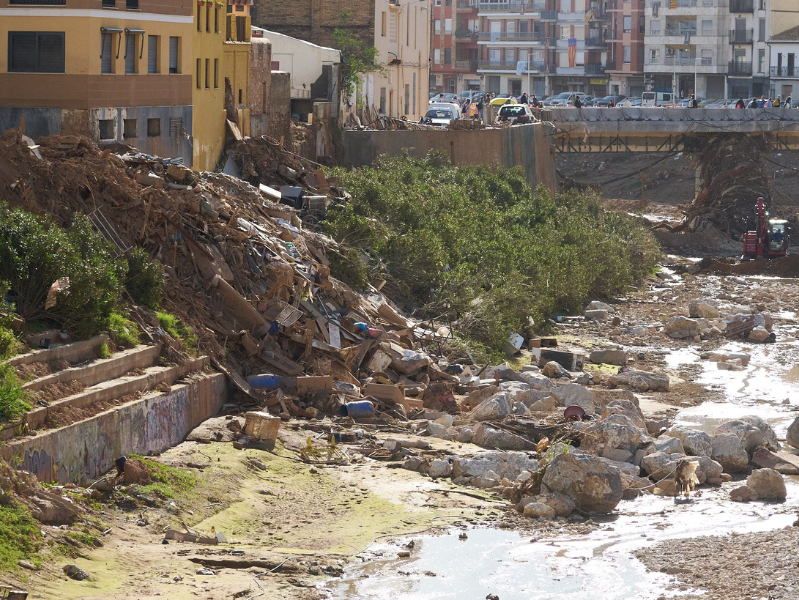RGU leads international project to support Valencia after devastating floods
Thursday 23 October 2025

The initiative comes in response to the catastrophic floods of late 2024, which claimed more than 220 lives and caused widespread destruction across the region.
On 29 October 2024, torrential rainfall across eastern Spain delivered more than a year’s worth of precipitation in a single day. The deluge caused extensive damage to homes, infrastructure, and communities, with damages estimated in the billions, making it one of the deadliest natural disasters in Spain’s history.
The storm, locally known as DANA, an acronym in Spanish for ‘High-Altitude Isolated Depression’, alongside other recent fatal flooding events worldwide, has highlighted the shortage of resources and expertise for crucial post-flood data collection.
RGU’s Scott Sutherland School of Architecture & Built Environment and the School of Computing, Engineering and Technology have joined forces with other institutions and international partners to develop new approaches that not only reimagine communities after flooding but also strengthen resilience against future events.
The project, titled ‘CREST: Co-creation for Resilient Environments through Storytelling and Technology’, harnesses a mix of advanced visualisation tools, predictive modelling and artificial intelligence (AI), underpinned by community-centred co-design.
High-quality data, captured through state-of-the-art LiDAR laser scanning, provides precise 3D spatial insights into areas affected by DANA, enabling highly accurate digital simulations and scenario planning.
To capture the scale of the devastation and the efforts underway to digitise the affected areas and prevent such destruction in future, filmmaker Jez Alsop joined Carlos Moreno-Garcia, Douglas Pritchard and Daria Belkouri of RGU to document one of the team’s site visits to Paiporta.
Professor Maria Sanchez, Associate Dean for Research at the Scott Sutherland School of Architecture & Built Environment, said: “DANA has left a profound and lasting mark on the communities of Paiporta and Letur, and it is vital that their voices remain at the heart of the recovery and transformation process.
“By working in partnership with a consortium of global universities, local councils, community organisations and urban planners experienced in disaster contexts, we can develop methodologies that not only address the immediate challenges but also strengthen resilience nationally and internationally.
“This is far more than a technological project, it is about empowering communities to co-create solutions, harnessing cutting-edge innovation while honouring local knowledge and lived experience.”
Dr Inés Aquilué Junyent, Associate Professor in the Department of Urbanism, Territory and Landscape at Universitat Politècnica de Catalunya (UPC), added: “Cities are facing enormous challenges: climate change, disasters and conflicts. However, these challenges also present opportunities to rethink how we design future cities to be more resilient. Architects and planners must ask themselves what the future will be like and how we can develop our work to design better places. New technological approaches could help us to visualise and develop new scenarios that emerge from these resilient futures.”
Project partners include: The James Hutton Institute, Universidad Politécnica de Madrid (UPM), Universidad Politecnica de Valencia (UPV), Universidad Politecnica de Catalunya (UPC), Sapienza University di Roma, Birmingham City University (BCU) and the local councils of Letur and Paiporta in Valencia.
